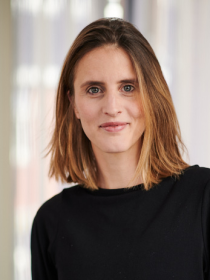dr. L. (Lea) Diestelmeier

January 2023-December 2026: Adaptive participatory strategies to foster acceptability and fairness in bottom-up energy initiatives (funded by the Ubbo Emmius Foundation as part of the M20 PhD scholarships under the Wubbo Ockels School of Energy and Climate ); Principle Investigator, co-supervisor of Ph.D.)
- This project researches the synergies between psychology insights into how people want to interact with decision-making and laws on public participation in the context of energy communities. Key issues addressed are organization and accessibility, governance structures, and democratic processes of energy communities so that they can foster effective public participation in decision-making and enhance inclusiveness and public acceptability of the energy transition. This project is carried out jointly by the Faculty Behavioural and Social Sciences (Associate Professor Goda Perlaviciute) and the Faculty of Law (Lea Diestelmeier).
January 2023-December 2026: Flexible Energy Communities: Coupling e-mobility and energy communities (FlexEC) ( funded by NWO under KIC 'energy transition as a socio-technical challenge'); Co-applicant, co-supervisor of Ph.D. and post-doc)
-This project researchers the synergies between energy communities (ECs) and mobility. ECs are seen as one of the cornerstones to technically and socially facilitate the energy transition in the EU and the Netherlands. Yet, their success is limited by two main factors: sufficient grid capacity at distribution system level and the ability and willingness of people and public and private entities to engage in joint activities in the energy sector by forming a “community”. This project addresses both limitations by investigating the option of transporting electricity via electric vehicles (EVs) within ECs and, related to that, broadening the range of communities that can together form an EC. The project is carried out under the lead of Wageningen University and Research by a consortium composed of Delft University, Faculty of Behavioural and Social Sciences and the Faculty of Law both of the University of Groningen and several societal partners.
December 2022-November 2026: THERESA (Funded by the European Union under the Marie Skłodowska-Curie Actions programme, Grant agreement ID: 101073195); Co-supervisor of Ph.D.
-This project will establish a doctoral research programme focused on the systematic legal analysis of hydrogen economy. Ph.D. candidates will receive training in regulatory intervention on hydrogen, which is a complex and growing field of regulation characterised by a highly fragmented legal framework. As an emerging economy, it presents risks, uncertainties and legal and academic challenges that need to be addressed. In this regard, THERESA has a triple focus: reduce sectoral fragmentation, promote the sustainable use of hydrogen and stimulate social engagement to the hydrogen economy. In order to achieve the objectives of the project, a methodology based on doctrinal and comparative analysis as well as empirical legal research will be used. The project is coordinated by the Faculty of Law of the University of Rovira i Virgili Tarragona (Prof.dr. Endrius Cocciolo) and carried out jointly with the University of Eastern Finland (Prof.dr. Kim Talus), and the Faculty of Law University of Groningen (Prof.dr. Lorenzo Squintani).
June 2022-November 2025: Data Cellar (Horizon Europe Framework Programme, Grant Agreement No. 101069694); Co-applicant, daily supervisor of Ph.D.
-This project aims to develop energy data spaces, supported by the blockchain-based marketplace, which will the formation, growth, and operation of local energy communities in the EU. The main objective of this project is to provide energy communities with tools that will help them to better manage their communities, develop their activities and contribute to the just energy transition. This project explores the interplay between law, ethics and technology. In this regard, it aims to create an inclusive energy data space that will make energy communities represented through the production of their data. In doing so, it investigates legal, technical and ethical conditions that are of crucial importance for the designing of energy data spaces, energy communities and applicable data-sharing frameworks.
August 2018-December2020: SEREH (Smart Energy region Emmen Haren) (Funded by the European Union programme Interreg, 151232); Post-doctoral researcher.
-This project is initiated by the Municipality of Emmen (in the Netherlands) and the city of Haren (in Germany), and aims to create the preconditions for the realization of a decentralized, cross-border and sustainable energy market. It is assumed that with a cross-border connection at distribution grid level, the demand and supply of sustainable electricity can be better matched at the regional level and provide benefits for the region.
August 2014-August 2018: SmaRds (Smart regimes for Smart grids, 408-13-005) (funded by NWO under the project URSES-Uncertainty Reduction in Smart Energy Systems ); Ph.D. researcher.
-This project developed an integrated package including both the legal design for smart grid deployment in real life situations and the policy design for construction and renovation at the local level. In general, the research shows that there is a strong mismatch between emerging organizational structures in smart grid projects and the envisaged setting by the current legal framework. Yet, additional findings from the legal project also show that law has the potential to steer developments in the energy system and to mitigate and prevent future uncertainties.
